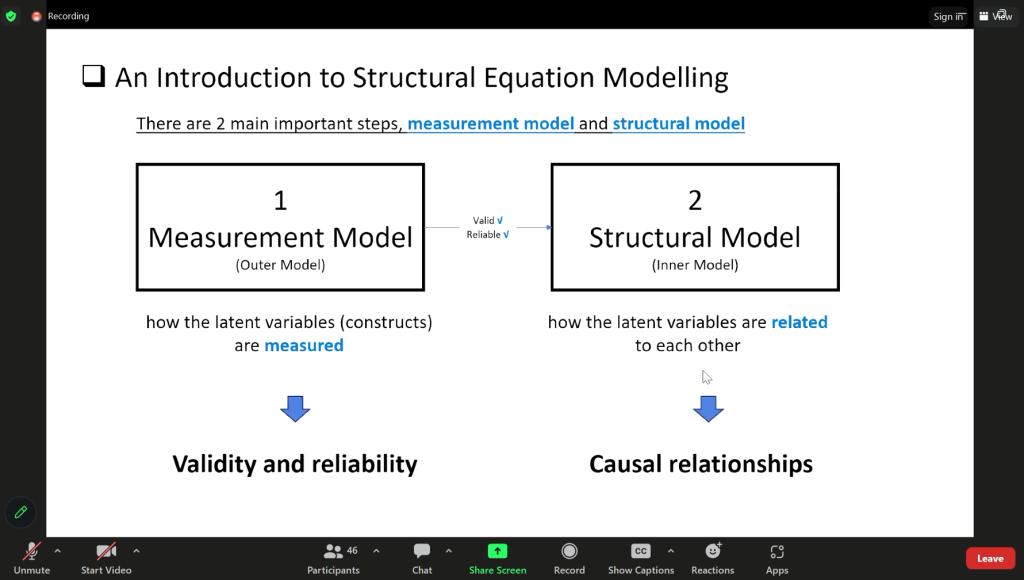The Master and Doctor of Science in Management Program at SBM ITB conducted the inaugural session of the MSM-DSM Lounge Tutorial Series on Friday (1/9) with the theme “Mastering Data-Driven Research: Unleash the Power of Data to Transform Your Insight and Decisions.” This series of tutorial classes is specifically designed for Master and Doctor of Science in Management SBM ITB students.
A total of 40 students actively participated in this event, where they acquired practical skills crucial to their academic pursuits. Through a systematic and hands-on approach, participants were equipped with valuable experiences to enhance their research journey.
The featured speaker for this initial tutorial session was Cintia Nurliyana, a doctoral candidate at SBM ITB. She delivered comprehensive insights into Partial Least Square-Structural Equation Modelling (PLS-SEM), a sophisticated yet immensely valuable data analysis method frequently utilized in research.
“Structural Equation Modelling (SEM) is a multivariate statistical technique used to analyze the structure of relationships between measured variables and latent variables. This allows researchers to test hypotheses about complex relationships between measured and latent variables in one comprehensive model,” said Cintia Nurliyana.

Meanwhile, Partial Least Square is the approach used in SEM for model estimation. In contrast to other SEM techniques, such as Maximum Likelihood, PLS is a component-based technique that does not assume a normal multivariate data distribution. This makes it a popular choice in many fields, especially when the data does not meet the assumptions of a normal distribution or when the sample size is relatively small.
“The notable advantages of this method include its capability to effectively manage data exhibiting non-normal distributions, its suitability for analyzing datasets with limited sample sizes, and its proficiency in accommodating models comprising numerous indicators and constructs,” she elaborated.
According to her, SEM-PLS is a powerful tool for analyzing complex relationships between variables in research. With its ability to handle non-normal data, small sample sizes, and complex models, PLS has become one of the most popular SEM approaches in many research fields.




